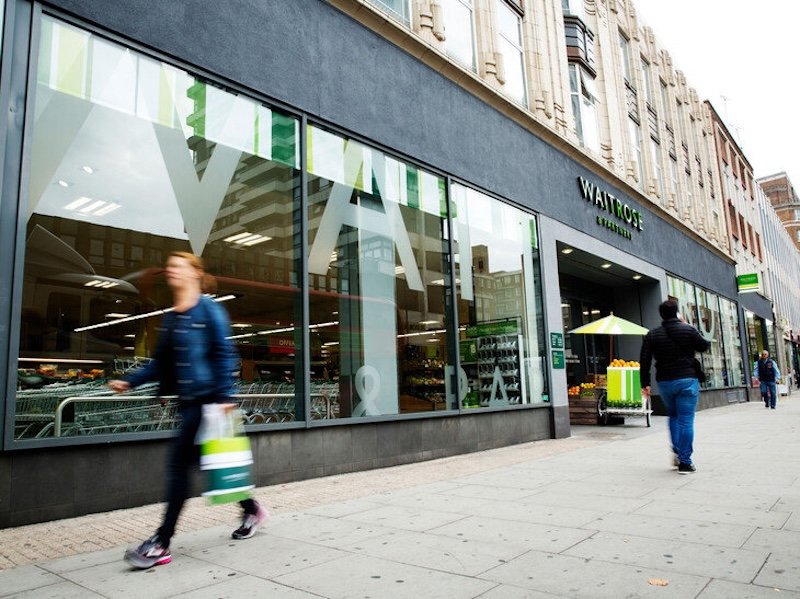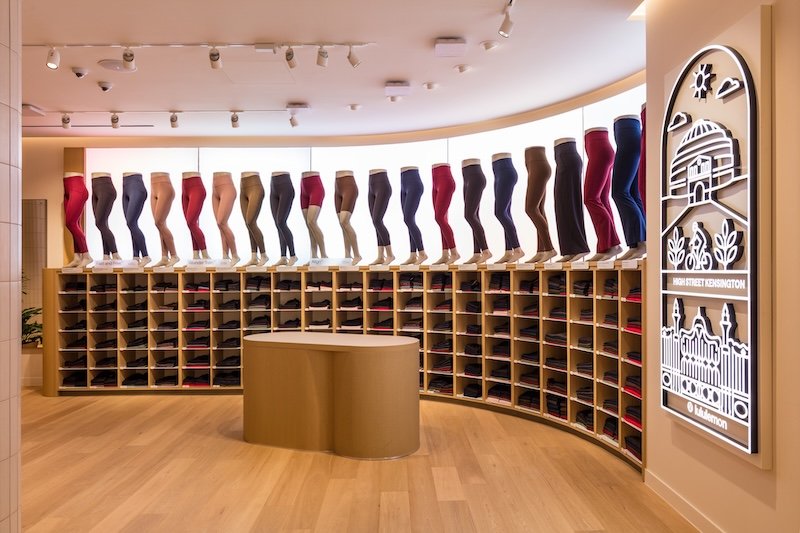Legal & General survey shows Britons love their high streets but half seen shop closures
A quarter of Britons regularly visit their local high streets to shop, eat, drink and play with 25% of 2,015 UK adults surveyed last quarter by Legal & General, a major pension and insurance player with many investments in UK retail spaces, saying they still go once a week. However, 45% have noticed more shops closing over the past couple of years.
Threats to shops on the iconic British high street emanate from the cost of living (COL) crisis, Covid-19 closures and the rise of online retail. This is why Legal & General wanted to understand how the British public feels about the past, present, and future of the High Street.
Regardless of these challenges, Brits still visit their High Street 81 times a year, on average. Glasgow residents in Scotland were the most frequent with 93 visits per year, followed by London (92 visits) and Cardiff (87 visits).
On average, 15% go a couple of times a week and 12% every or most days of the week. 13% go once a fortnight or once per month.
When asked about what businesses or establishments they visited the most, supermarkets reigned supreme, with 40% of adherents on average citing that as they key reason to go to the high street.
However, this wasn’t the case everywhere. In Edinburgh, for example, people were more likely to say they visit cafes (26%) – perhaps as a consequence of work from home (WFH) drivers – and charity shops (26%) than supermarkets (24%).
Similarly, in Bristol, cafes (30%) and charity shops (30%) were more popular than supermarkets on 29%.
Evolving dynamics
This seems to reflect a general trend towards a more experiential High Street with the ‘transactional’ visit to the bank branch that has probably closed or the supermarket, which can be accessed online, declining in importance.
36% of respondents agreed that non-chain local businesses are instrumental in shaping the character and identity of their High Street and communities, and they want to support them.
Even charity shops, offering a variety of donated items for sale, offer an alternative to yet another retail chain outlet and are accordingly popular with some. 37% of respondents visited last year, with 38% finding them cheaper during COL pressures than regular stores, while 34% appreciate the unique finds. A similar number merely want to support the good cause.
When questioned about what the future of the ideal UK High Street looks like, respondents showed clear preferences, with:
35% wanting a broader selection of shops to act as a compelling draw. Women on 41% were more keen to see this than men (29%).
25% wanted to see music stores back on the High Street, and also more seating areas (21%), green spaces (18%) and better public transport (17%).
Challenges in recent years
The desire for new options on the High Street is needed after recent online, COL and Covid pressures. 6,000 stores have been lost in the last five years and UK High Street vacancies have soared to 13.9%, according to the British Retail Consortium's (BRC) trade body’s most recent data, published in July 2023.
Legal & General’s survey highlights that the upheaval has been keenly observed by those polled. Respondents revealed the various changes they've witnessed on their local High Streets over the past couple of years:
45% noted the closure of more shops.
37% observed a reduction in the number of retail shops.
17% saw the transformation of independent shops into prominent big-brand establishments. Chain stores were less favoured.
Regionally, those in Wales (54%) and the South West of England (50%), were particularly likely to report the closure of shops.
Furthermore, respondents over the age of 55, who have fond memories of thriving High Streets in their youth – before the advent of malls – have proven to be the most sensitive to the recent changes. A majority of elders (56%) acknowledged the impact of shop closures in their local communities.
Investing in the future
All the more reason why transitioning towards experience led high streets in the future is a vital consideration for investors in traditional UK retail spaces, such as Legal & General.
They have undertaken refurbishments in the Dolphin community and shopping centre it owns in Poole, Dorset, adding a health facility and the Foundry suburban co-working space, as an example of their determination to maintain retail area’s crucial role as a community hub.
The Kingsland spin-off development of local businesses in Dorset also got a reduction in rent and business rate taxes to give the area a more unique, independent feel – reflective of the findings in the survey against chains.
Commenting on the research, Denz Ibrahim, Head of Retail and Futuring at Legal & General Investment Management Real Assets, said: “We are dedicated to understanding the sentiments and aspirations of the communities we collaborate with and recognise High Streets are not just about transactions – they are about creating vibrant, multifaceted community spaces.”
“While there is still work to be done to fully realise the ultimate vision for the future of our High Streets, it's encouraging to see the survey results confirm Brits’ continued affection for them. We will persist in our efforts to enhance and preserve the unique character of the British high street, making it a vibrant and inclusive place for people to gather.”















Continue reading…